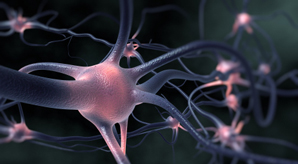Neurology
Our Treatment Capabilities
Specialized Equipment
- Magnetic Resonance Imaging (MRI) Scanner
Gives us the ability to evaluate with a great amount of detail the brain and spinal cord of animals with neurological disease.
- Computerized Tomography (CT) & Positron Emission Tomography (PET) Scanner
Allows us to evaluate bony structures of the skull and spine (CT) and the metabolic function of the brain (PET).
- Highest Quality Neurological Instruments
High speed air drills, a craniotome (tool for drilling holes into the skull), and fine neurosurgical instruments give us the ability to perform advanced neurosurgical procedures involving the brain and spinal cord.
- Linear Accellerator
Allows us to perform both Sterotactic Radiation Therapy and Intensity-Modulated Radiation Therapy with the most advanced radiotherapy system in the country for animals with brain or spinal cord neoplasia.
Commonly Treated Conditions
We can treat a wide array of neurological diseases and, in cases where we cannot cure, we can usually help manage the disease to give your pet the best quality of life possible. The following are some examples of neurological conditions we commonly treat:
- Seizures
These episodes of disturbed brain function can cause twitching, shaking of the body, and loss of awareness.
- Brain or Spinal Tumors
These are abnormal cells that form a mass in the brain or spinal cord.
- Brain & Spinal Trauma
Injury to the brain or spinal cord generally occurs due to an accident. If you suspect your pet may have hit its head or have an injured back, you should have your pet evaluated, even if it isn't showing symptoms.
- Encephalitis
An acute inflammation of the brain, usually caused by infection.
- Hydrocephalus
- Degenerative Myelopathy
- Disk Disease
A loss of fluid or tears and cracks in spinal disks that causes back or neck pain, pressure on the spinal cord and nerves, which can sometimes affect nerve function.
- Wobbler Disease:
When the cervical vertebrae are malformed or narrow, the spinal cord may become compressed or injured causing issues with movement and standing. This is more typical in large-breed dogs.
- Peripheral Nerve Disease
- Muscle Diseases
- Diseases of Cranial Nerves
- Neuromuscular Junction Disease
This is a condition where the neuromuscular junction, or the synapse between specific neurons and the surface of muscle, does not function correctly. This can cause muscle tissue to incorrectly contract and relax.

